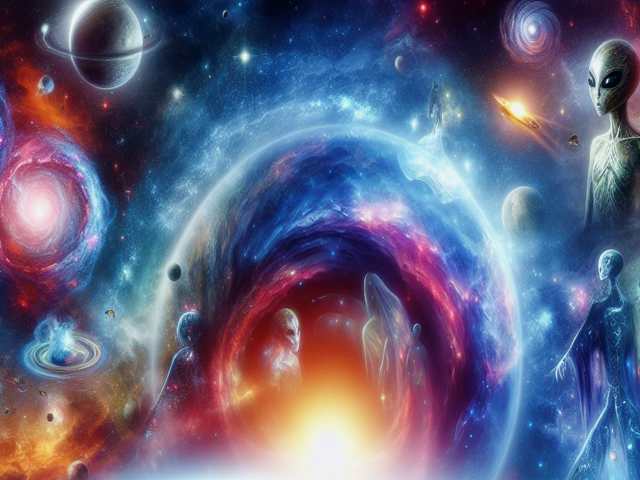Exploring the Cosmic Enigma of Extraterrestrial Intelligence
Intelligent Life: Is it plausible to imagine that we, the citizens of the twenty one century on Earth, are the sole sentient beings in the vast cosmic expanse? Despite the absence of extraterrestrial homunculi on display in museums, the assertion that “Earth is the only abode of intelligent beings” remains seemingly valid. However, the landscape of uncertainty expands exponentially upon closer examination of recent discoveries and ongoing research.
On a clear night, the naked eye can discern approximately 4,500 stars, according to astronomers. Telescopes, even those in modest observatories, reveal nearly 2,000,000 stars, while modern reflecting telescopes bring light from millions more within the Milky Way. Yet, our stellar system is but a minuscule part of a vastly larger system—akin to a cluster of Milky Ways, comprising about twenty galaxies within a radius of 1,500,000 light-years.
Astronomer Harlow Shapley’s estimate of 10^20 stars within telescope range prompts us to ponder the possibility of life associated with these celestial bodies. Even with a conservative assumption that only one in a thousand stars supports a planetary system, the potential for life remains staggering. Shapley questions how many of these stars possess an atmosphere conducive to life, suggesting that even if the odds are one in a thousand, the result still yields an astonishing 10^11 stars with life-friendly conditions. Speculating further, if only one in a thousand of these life-suitable planets hosts life, we arrive at a staggering 100,000,000 planets with potential life. And this calculation only considers current telescope capabilities, which are continually advancing.
Dr. Stanley Miller’s biochemical hypothesis introduces the notion that life might have evolved more rapidly on certain planets than on Earth. Following this daring assumption, civilizations surpassing our own could have emerged on up to 100,000 planets, according to the late Willy Ley, a renowned scientific writer.
Considering the estimated 30 billion stars in our Milky Way and adopting cautious estimates about planetary systems, Ley suggests that even under conservative assumptions, 180 million planets may support life. If only 1 percent of these planets harbor life, we are left with a remarkable 1.8 million inhabited planets. Driven by recent counts of 100 billion fixed stars in the Milky Way, probabilities suggest an even higher figure.
The conventional belief that life requires Earth-like conditions is challenged by ongoing research. Life on Earth itself exhibits incredible diversity, with approximately 2,000,000 different species. Some defy traditional expectations, such as anaerobic bacteria that thrive without oxygen. Recent experiments mimic extreme conditions, revealing life’s adaptability to highly radioactive water, intense heat, and cold.
As our understanding expands, we must update our worldview. Teilhard de Chardin‘s perspective on the cosmos as a realm of the fantastic gains relevance. Rationality demands that we acknowledge the potential for diverse life forms beyond our current comprehension.
The age of the universe, estimated at eight to twelve billion years, coupled with the discovery of organic matter in meteorites and the resilience of ancient bacteria, hints at the possibility of life’s enduring existence. Geological evidence suggests an Earth crust formation approximately 4 billion years ago, yet our recorded human history spans a mere 7,000 years.
Our past convictions, rooted in the belief that Earth is the pinnacle of creation, have often crumbled in the face of new knowledge. The time has come to embrace our cosmic insignificance and explore the infinite possibilities that lie beyond. Our future and opportunities await in the cosmos, urging us to look forward and, in doing so, gain the strength and courage to scrutinize our past with honesty and impartiality.

